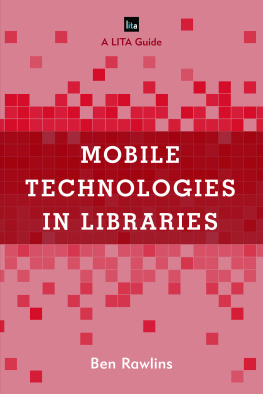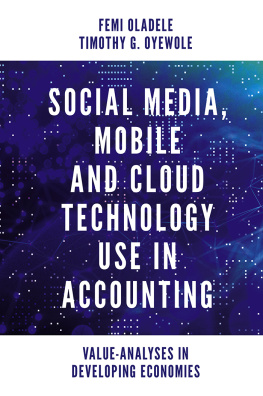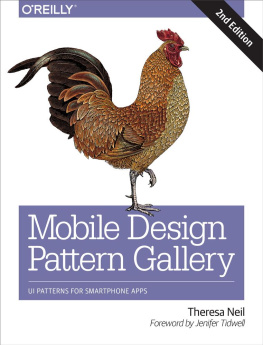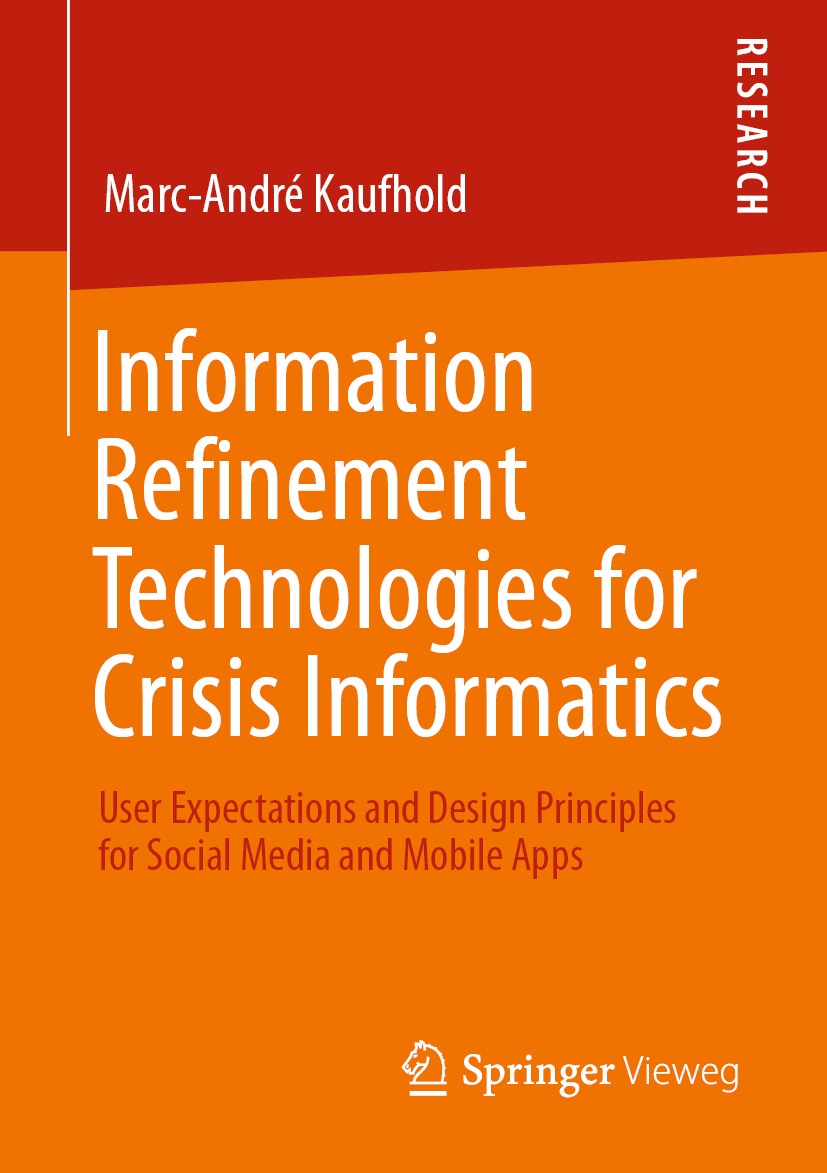Marc-Andr Kaufhold
Information Refinement Technologies for Crisis Informatics
User Expectations and Design Principles for Social Media and Mobile Apps
1st ed. 2021

Logo of the publisher
Marc-Andr Kaufhold
Darmstadt, Germany
ISBN 978-3-658-33343-0 e-ISBN 978-3-658-33341-6
https://doi.org/10.1007/978-3-658-33341-6
Darmstadt, Technische Universitt Darmstadt, doctoral thesis
The Editor(s) (if applicable) and The Author(s), under exclusive license to Springer Fachmedien Wiesbaden GmbH, part of Springer Nature 2021
This work is subject to copyright. All rights are solely and exclusively licensed by the Publisher, whether the whole or part of the material is concerned, specifically the rights of translation, reprinting, reuse of illustrations, recitation, broadcasting, reproduction on microfilms or in any other physical way, and transmission or information storage and retrieval, electronic adaptation, computer software, or by similar or dissimilar methodology now known or hereafter developed.
The use of general descriptive names, registered names, trademarks, service marks, etc. in this publication does not imply, even in the absence of a specific statement, that such names are exempt from the relevant protective laws and regulations and therefore free for general use.
The publisher, the authors and the editors are safe to assume that the advice and information in this book are believed to be true and accurate at the date of publication. Neither the publisher nor the authors or the editors give a warranty, expressed or implied, with respect to the material contained herein or for any errors or omissions that may have been made. The publisher remains neutral with regard to jurisdictional claims in published maps and institutional affiliations.
Responsible Editor: Stefanie Eggert
This Springer Vieweg imprint is published by the registered company Springer Fachmedien Wiesbaden GmbH part of Springer Nature.
The registered company address is: Abraham-Lincoln-Str. 46, 65189 Wiesbaden, Germany
Foreword
Social media and mobile apps have been part of our lives for almost 20 years now and are used by large parts of the population; however, not only in everyday situations, but also in emergencies, crises, and disasters. These technologies offer many opportunities for crisis management, including a fast flow of information among involved actors, direct organization of civil self-help, or situational awareness for emergency services. Still, the potential information overload, increased complexity for emergency managers, or spread of misinformation pose substantial risks, as demonstrated recently by the COVID-19 pandemic. Hence, by combining knowledge, methods, and theory from computing and social sciences, the research area of crisis informatics has been investigating the effective use and design of information and communication technology (ICT) to prepare for, respond to, and recover from critical situations.
The dissertation of Marc-Andr Kaufhold addresses this research area and explores the process of information refinement, comprising the applied practices and used technologies to refine obtained information according to event-related, organizational, societal, and technological boundary conditions in order to improve crisis management. The dissertation provides empirical and technical findings for computer science, including contributions to the disciplines of human-computer interaction (HCI), computer supported cooperative work (CSCW), and information systems (IS). The work addresses (1) the research of expectations, perceptions, and usage patterns of the population regarding ICT usage, focussing on social media and crisis apps, and derives (2) implications for the design and implementation of these applications to support effective information refinement.
Marc-Andr Kaufholds dissertation presents outstanding work. The methodological spectrum, from qualitative and quantitative empirical studies to technical contributions in computer science, and the quality of the work, in particular visible by the publication performance of the candidate in quantity (63 publications), quality (9x CORE-A/A* until submission of the dissertation), and the already achieved scientific impact (about 650 citations), are in my opinion excellent for a dissertation. Marc-Andr Kaufhold has clearly demonstrated that he is capable of independent scientific work and his dissertation was graded summa cum laude. I wish Marc and his research all the best in his future career! For the readers, I wish a pleasant and instructive reading.
Prof. Dr. Christian Reuter
Acknowledgements
My dissertation would not have been possible without the support of many people, projects, and organizations. I am incredibly grateful to my doctoral advisor Prof. Dr. Christian Reuter for our discussions and his advice during the entire research process. I also thank my co-advisor Prof. Dr. Gunnar Stevens for his valuable support during my research activities as well as Prof. Dr. Matthias Hollick, Prof. Dr. Max Mhlhuser, and Prof. Dr. Arjan Kuijper who kindly agreed to join the doctoral committee. Furthermore, I would like to thank Prof. Dr. Volkmar Pipek, Prof. Dr. Thomas Ludwig, and Dr. Marn Schorch who supported my research during my time at the Institute for Information Systems at the University of Siegen.
I am grateful to my colleagues of the research group Science and Technology for Peace and Security (PEASEC) at the Department of Computer Science at the Technical University of Darmstadt for their valuable feedback to my concepts and ideas. Here, I would especially thank my colleagues Jasmin Haunschild and Thea Riebe, who worked together with me in research projects and co-authored some of my conference papers and journal articles. Moreover, I would like to thank (former) student assistants, especially Lukas Dratwa, Margarita Grinko, Sabrina Neuhusel, Leo Bauer, and Helene Pleil, who have contributed in several ways to my thesis, including literature research, implementation of ICT and proofreading of publications.
Furthermore, my special thanks to all co-authors of my conference papers and journal articles, including Markus Bayer, Nicola Rupp, and Matthias Habdank, as well as participants in my empirical studies for the insightful collaboration and for their contribution to my work. I am also obliged to the supporting and underlying research centres, programmes, and projects EmerGent (project funded by the European Union Framework Programme for Research and Technological Development, FP7 No. 608352) and KontiKat (junior research group funded by the German Federal Ministry for Education and Research, BMBF No. 13N14351) at the University of Siegen, as well as ATHENE (national research centre funded by the German Federal Ministry of Education and Research and the Hessen State Ministry for Higher Education, Research and Arts) and MAKI (collaborative research centre funded by the German Research Foundation, DFG SFB 1053) at the Technical University of Darmstadt.








